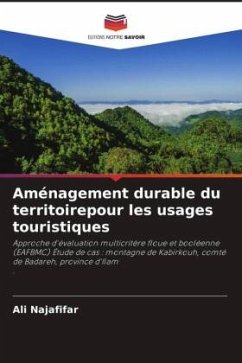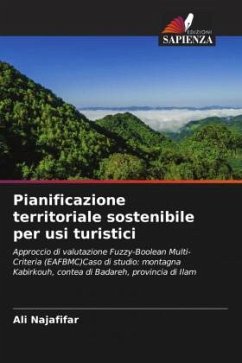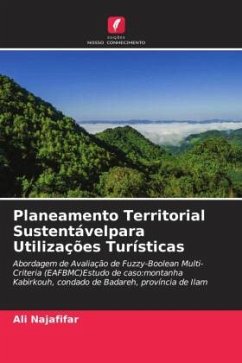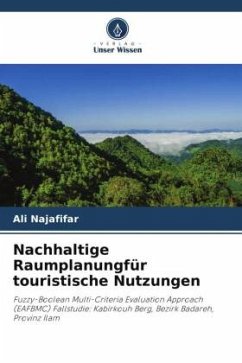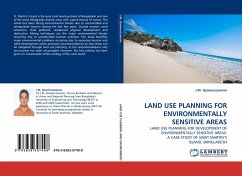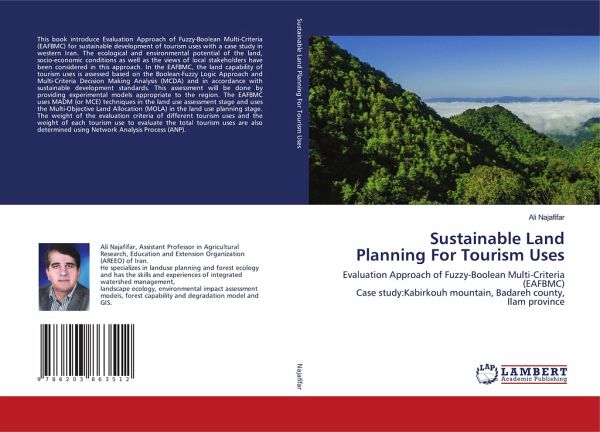
Sustainable Land Planning For Tourism Uses
Evaluation Approach of Fuzzy-Boolean Multi-Criteria (EAFBMC)Case study:Kabirkouh mountain, Badareh county, Ilam province
Versandkostenfrei!
Versandfertig in 1-2 Wochen
41,99 €
inkl. MwSt.

PAYBACK Punkte
21 °P sammeln!
This book introduce Evaluation Approach of Fuzzy-Boolean Multi-Criteria (EAFBMC) for sustainable development of tourism uses with a case study in western Iran. The ecological and environmental potential of the land, socio-economic conditions as well as the views of local stakeholders have been considered in this approach. In the EAFBMC, the land capability of tourism uses is assessed based on the Boolean-Fuzzy Logic Approach and Multi-Criteria Decision Making Analysis (MCDA) and in accordance with sustainable development standards. This assessment will be done by providing experimental models ...
This book introduce Evaluation Approach of Fuzzy-Boolean Multi-Criteria (EAFBMC) for sustainable development of tourism uses with a case study in western Iran. The ecological and environmental potential of the land, socio-economic conditions as well as the views of local stakeholders have been considered in this approach. In the EAFBMC, the land capability of tourism uses is assessed based on the Boolean-Fuzzy Logic Approach and Multi-Criteria Decision Making Analysis (MCDA) and in accordance with sustainable development standards. This assessment will be done by providing experimental models appropriate to the region. The EAFBMC uses MADM (or MCE) techniques in the land use assessment stage and uses the Multi-Objective Land Allocation (MOLA) in the land use planning stage. The weight of the evaluation criteria of different tourism uses and the weight of each tourism use to evaluate the total tourism uses are also determined using Network Analysis Process (ANP).
This book intro
This book intro



